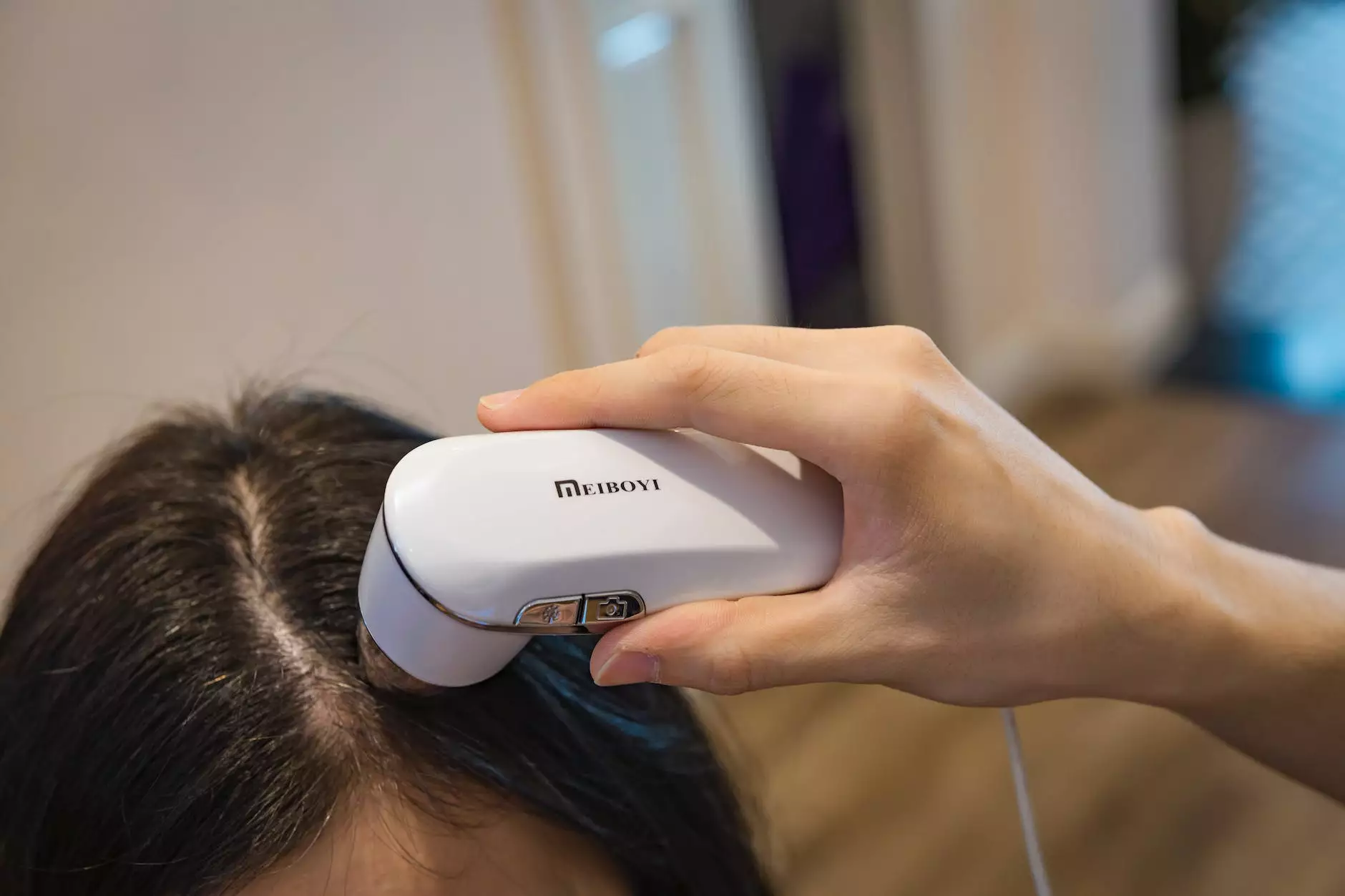Hair Loss in African-American Women

Welcome to the comprehensive guide on hair loss in African-American women, brought to you by Smith, Arthur F, MD, a trusted name in the field of health. If you are a woman of African descent and experiencing hair loss, you are not alone. Hair loss is a common concern faced by many African-American women, but fortunately, there are effective solutions that can address this issue.
Understanding Hair Loss in African-American Women
Before delving into the various treatments, it is essential to understand the reasons behind hair loss in African-American women. The unique hair structure of African-American women makes them more susceptible to certain types of hair loss.
Common Types of Hair Loss
1. Traction Alopecia: This type of hair loss occurs due to repeated tension and stress on the hair follicles, commonly caused by tight hairstyles like braids, weaves, or tight ponytails. Proper hair care practices and avoiding excessive pulling or tension can prevent traction alopecia.
2. Central Centrifugal Cicatricial Alopecia (CCCA): CCCA is a form of scarring alopecia that predominantly affects African-American women. The exact cause of CCCA is still under investigation, but it is believed to be linked to genetics, hormonal factors, and styling practices. Early detection and treatment are crucial to prevent further hair loss.
3. Androgenetic Alopecia: Also known as female pattern baldness, androgenetic alopecia causes gradual thinning of the hair due to a combination of genetic and hormonal factors. It is essential to seek professional guidance to manage and treat this condition effectively.
Effective Treatments for Hair Loss
Now that you have a better understanding of the types of hair loss in African-American women, let's explore some effective treatments and preventive measures.
1. Hair Care Routine:
A proper hair care routine is an essential foundation for healthy hair growth. Begin with a gentle shampoo and conditioner specifically formulated for African-American hair. Avoid harsh chemicals and excessive heat styling, as these can damage your hair and contribute to hair loss. Regular deep conditioning treatments can also help nourish and strengthen your hair.
2. Low Manipulation Hairstyles:
Opt for low manipulation hairstyles that minimize tension and pulling on your hair. Consider protective styles like twists, braids, or bantu knots that promote hair growth while reducing the risk of traction alopecia. Avoid hairstyles that require excessive pulling, tightness, or use of damaging hair accessories.
3. Topical Treatments:
Several topical treatments have shown positive results in promoting hair growth and reducing hair loss. Look for products containing ingredients like minoxidil, which has been FDA-approved for treating androgenetic alopecia. Additionally, natural remedies such as essential oils (e.g., rosemary oil, lavender oil) can be beneficial in stimulating hair growth and improving scalp health.
4. Platelet-Rich Plasma (PRP) Therapy:
PRP therapy is a regenerative treatment that uses the growth factors present in your blood to stimulate hair growth. This non-surgical procedure involves injecting platelet-rich plasma into the scalp, triggering the body's natural healing response and promoting hair regrowth.
5. Hair Transplants:
Hair transplants are a surgical option for those experiencing severe hair loss. This procedure involves removing hair follicles from donor areas and implanting them into areas with thinning or no hair. It provides a long-term solution and natural-looking results, improving both the appearance and self-confidence of patients.
Consultation with Smith, Arthur F, MD
If you are struggling with hair loss and looking for personalized guidance and treatment, we encourage you to schedule a consultation with Smith, Arthur F, MD. As an experienced healthcare professional specializing in hair loss in African-American women, Dr. Smith takes a comprehensive approach to address the root causes of hair loss and tailor treatments to individual needs.
During your consultation, Dr. Smith will conduct a thorough evaluation, including a medical history review and scalp examination, to determine the most appropriate treatment options for your specific condition. These may include a combination of medical therapies, lifestyle modifications, and innovative procedures to optimize hair growth and restore your confidence.
Conclusion
Hair loss can be a distressing experience, but with the right guidance and treatment, you can regain your hair's health and vitality. At Smith, Arthur F, MD, we understand the unique hair care needs of African-American women and offer specialized solutions to address hair loss effectively.
Remember, seeking professional help is crucial to identify the underlying causes of your hair loss and develop a personalized treatment plan. Take a step towards reclaiming your beautiful hair by scheduling a consultation with Smith, Arthur F, MD today.










